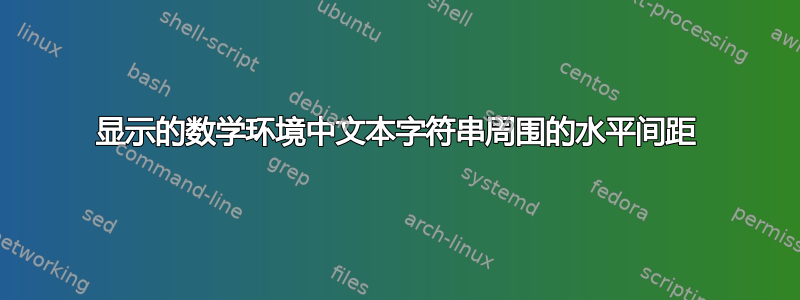
\documentclass{report}
\usepackage{amsmath}
\newcommand\eqtext[1]{\hspace{1.0em}\text{#1}\hspace{1.0em}}
\begin{document}
\[x = y \eqtext{if and only if} y=x.\]
\end{document}
在这种情况下,水平间距应该是多少?在我的示例中,它是1.0em。
这是一个风格问题,所以我不确定它是否属于这里。
答案1
我认为文本字符串周围适当的印刷空格量取决于文本字符串的内容以及字符串之前和之后的内容。
例如,如果文本字符串由“当且仅当”组成,并且字符串前后的内容就像x=yand一样简单y=x,那么普通的单词间空格就可以了:
x=y \text{ if and only if } y=x
\text{$x=y$ if and only if $y=x$} % note: entire line is arg. of \text
相反,如果字符串之前和/或之后的数学表达式比 稍微复杂一些x=y,那么多一点空格(比如 的数量\quad)可能会使内容更易于阅读。例如,请参见以下屏幕截图的第三行——它实际上包含两个 实例\text,具有两种不同的空格量。
\documentclass{report}
\usepackage{amsmath}
\begin{document}
\begin{gather*}
x=y \text{ if and only if } y=x \\
\text{$x=y$ if and only if $y=x$} \\
\frac{x^2}{y^2}\ne0 \quad\text{if and only if}\quad x\ne0 \text{ and } y\ne0\\
\end{gather*}
\end{document}



